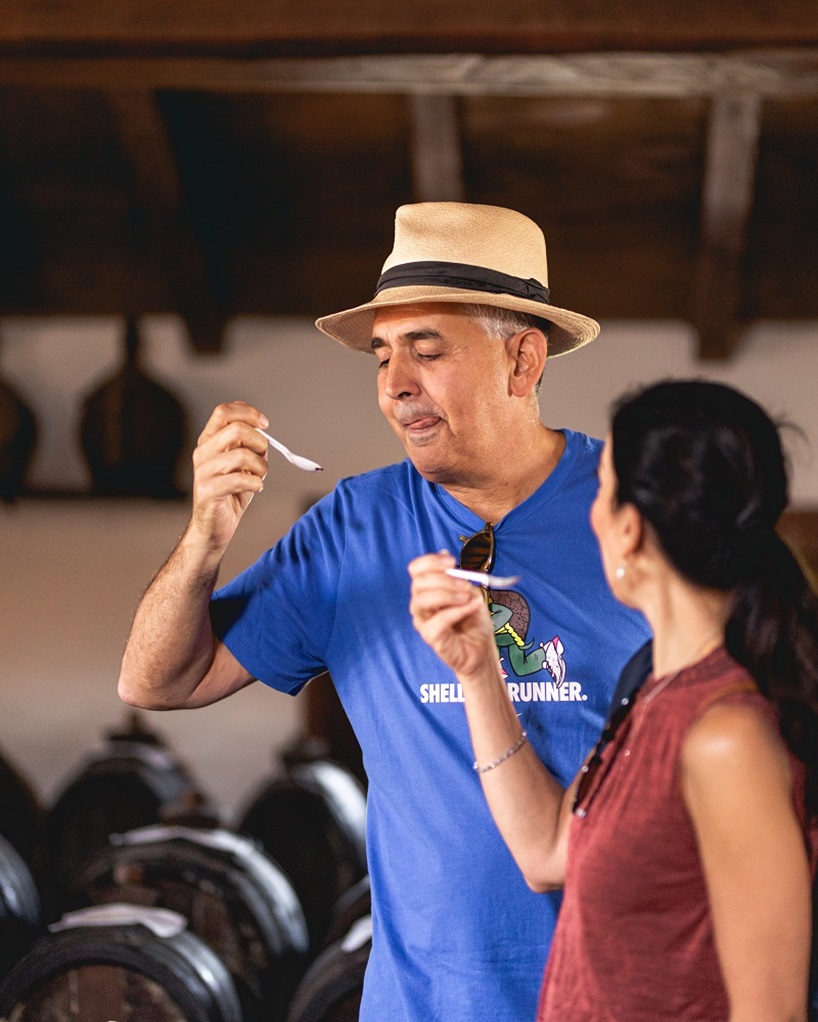There is something special about balsamic vinegar that makes it different from any other ingredient. Maybe it is its dark color, its glossy and honey-like texture, its intense bouquet of perfumes and flavors, or maybe its balance between sweet and tart.
All of these characteristics combined have made balsamic vinegar of Modena IGP a precious ingredient not only in the average kitchen but also with famous chefs around the world.
Yes. Balsamic vinegar has many more uses than accompanying salad. Italians have been using it for hundreds of years to enhance their meat dishes and even desserts. Balsamic vinegar can be an unbelievable addition to lamb, steak, some vegetable dishes like brussel sprouts and spinach, and our favorite desserts! A drizzle on top of fresh strawberries, a delicate decoration on pannacotta or even vanilla ice cream will change your view of balsamic vinegar forever.
What is balsamic vinegar?
Balsamic vinegar is different from any other vinegar we can find. Dark, syrupy, and of incredible flavor, this ingredient has a long history that can be tracked to almost one thousand years ago.
This vinegar is made with a concentration of grapes cooked slowly to reduce its liquid content (commonly known as grape must) and then aged in wooden barrels through a complex process.
As its name states, the balsamic vinegar of Modena comes from Modena, Italy. The first written records date back to the Middle Ages and since then traditions in the making of this dark gold have stayed pretty much the same, thanks to regulations and standards for its production.
Different types of balsamic vinegar
There are several different kinds of balsamic vinegar, but they are rather easy to recognize.
The most precious type is called Traditional Balsamic Vinegar of Modena D.O.P. This vinegar is made respecting the old ways, with every step being monitored to ensure a balsamic vinegar of amazing quality, just as good as it used to be hundreds of years ago.
The process to make Traditional Balsamic Vinegar of Modena D.O.P. is long and extremely complex, plus its strongly regulated to guarantee the purest product is the result, close to what it used to be hundreds of years ago, preserving the steps that were fundamental in making this unique ingredient.
The I.G.P. denomination also means that the balsamic vinegar is produced following a set of standards, going from where the grapes come from, the types of grapes that can be used, and how the ageing process works step by step. This guarantees the excellent quality balsamic vinegar of Modena I.G.P. has.
Finally, there are a lot of imitations, some may also be named balsamic vinegar, but without the proper denominations, that has little meaning, and you may be compromising on the quality of this ingredient since texture and flavor are different to the D.O.P. and I.G.P. balsamic vinegar.
Which balsamic vinegar is best for me?
There is a huge difference between the types of balsamic vinegar we mentioned. It could be the look of it, the texture, the flavor, or the perfume.
The main question to ask yourself before spending a lot or very little on balsamic vinegar is how you are going to use it. If you’re hoping to enhance desserts and are hoping to rely on the delicacy of this ingredient, then you most definitely need to go for a Traditional Balsamic Vinegar of Modena D.O.P. or an I.G.P. denomination.

